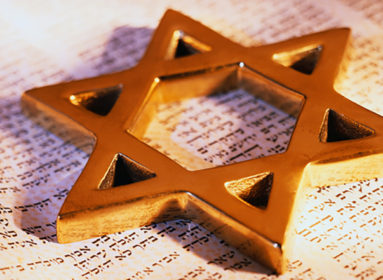
By Cindy Mindell
A few months before Hillel Warsaw’s April grand opening, a group of 104 American Jewish college students — among them seven students from Connecticut — were exploring the Jewish history and heritage of Poland in an attempt to better understand their own place in Jewish peoplehood.
Leading the week-long winter-break educational tour was Meor, a non-profit organization that engages Jewish students on 21 university campuses throughout the U.S. and young adults in its Manhattan center. Founded in 2005, Meor (Hebrew for “illumination”) offers educational programs and learning trips to Poland and Israel, aimed at grooming a new generation of Jewish leaders who are committed to Jewish values and engaged in the Jewish community, civic life, and support of Israel.
“Most Jewish education stops at 12 or 13, and from bar/bat-mitzvah to college kids have had little or no education. So we try to give that to them in college,” says Debra Kodish, Meor’s executive vice president. “It is clear that dedicated study coupled with first-hand experiential education can reverse the trend of faltering Jewish identity across the United States and produce Jews who are not just connected, but passionate about their rich Jewish heritage and eager to lead.”
Visiting Poland has become a key component of the Meor curriculum. “It’s important that the students see with their own eyes that so much death happened there, and come out of Poland saying, ‘I see so much about why I want to live and do something Jewishly in life,’” says Kodish.
Over the course of the trip, students explored Polish Jewish communities, some once thriving and others newly emerging. They said Kaddish in Jewish cemeteries and walked through Auschwitz with a camp survivor. Every stop included an interactive educational component, for example, says Kodish, “We could be at a mass grave and there’s a whole discussion going on: why does everyone want to kill us? What do we have that everyone’s upset about?”

Leslie Kleinman, a Holocaust survivor now living in London, went with students to Birkenau concentration camp where they held a yahrzeit service for the many members of his family who perished there.
For Westport resident Madeline Gelfand, a rising junior at the University of Pennsylvania, the highlight of the trip was meeting and speaking with Leslie Kleinman, a Holocaust survivor now living in London. “In particular, there was one day that we went to Birkenau and did a yahrzeit service for his family,” Gelfand recalls. “It was incredibly moving to be right in the middle of the place where so many of his, and our, family members died and to listen to him speak about how fortunate the Jews are to still be here, how amazing we are as a people, and how HaShem (God) will always be with us. We walked out singing ‘Am Yisroel Chai,’ which was incredible poetic justice to the Nazis who tried to wipe us out in that very spot, and to leave that camp was the most freeing experience in the whole world.”
Samantha Udolf, a West Hartford resident who graduated from Harvard University in May, saw the trip to Poland as a continuation of her expanding interest in Judaism. “Having grown up in a Reform household, I thought of my Judaism as more ‘cultural’ rather than spiritual or religious,” she says. “My experience at Harvard exposed me to a wide range of people, classes, and organizations that piqued my curiosity. I attended shul with my roommate, took classes on Judaism, and participated in the Meor Leaders Fellowship during the fall of my senior year. I was excited to go to Poland because I had never visited the country and was curious to learn about their culture and history. I was most interested to learn about Poland post-World War II.”
Westporter Caitlyn Rand is a rising senior at the University of Pennsylvania. Raised in a Conservative family that was active in the local Jewish community, she decided to join the Poland trip on the suggestion of friends, who described the experience as “the highest of highs and the lowest of lows.”
“After going on the trip myself, I understand how accurately this description portrays the trip,” she says. “I saw the opportunity to go on the Poland trip not as simply a culmination of everything I had learned about Judaism and in Meor but also as another way to reinforce my connection with my Jewish ancestors and the Jewish people.”
Meor professionals hope that students return from learning trips inspired to delve deeper into Jewish life.

Students gather in Yeshiva Chachmei Lublin, an important center for Torah study prior to World War II.
“We’ve already worked with the kids on campus, so they’re injected with a pretty good Jewish identity,” says Kodish. “If they don’t have Judaism in their hearts, they’re not going to be able to combat BDS and they’re not going to be able to be Israel advocates in the same way. Even though that’s not our role on campuses, we find that a lot of our students go on to do Israel advocacy and they’re at the forefront of fighting BDS, and with a lot of knowledge. They feel really empowered and they have a support group.”
The approach seems to be working, with each student making a commitment before leaving Poland.
“The thing that stuck out to me the most throughout the whole experience was how much people cared about their Judaism,” says Gelfand. “Looking at the things that people brought home with them – mezuzzahs, menorahs, kiddush cups – was so inspiring, and also so sad considering how little so many Jews care about Judaism. Understanding more about how integral Judaism was affirmed my choice to make Judaism a defining factor in my life and in everything I do.”
On the last night of the trip, students were challenged to choose one thing that connects them to Judaism and promise to incorporate it in our lives.
“After my first Meor trip to Israel, I began keeping Shabbat, which was something really meaningful to me and very in-line with my experience in Israel,” says Gelfand. “After Poland, I decided to say a blessing before eating. It’s a good way for me to remember to be thankful for the basic freedom to eat when and what I want, which I appreciate so much more after trying to imagine what the Holocaust was like.”
Udolf encountered that spark of light in one of the darkest places imaginable.
“Standing with my peers at Auschwitz Birkenau, the mass graves, and the death camps was overwhelming, to say the least,” she says. “In those moments, I found myself reflecting most on my own life. During the trip, we found ourselves asking the question ‘Why us?’ It must be because there is something special about being Jewish. I walked away from this trip with this question in mind, and feeling a deep sense of pride in being Jewish. I want to enhance my own life with a greater spirituality and connection to Judaism. Post-trip, I made a resolution to celebrate Shabbat most every Friday. In addition, I met weekly with the Meor rabbi at Harvard, Rabbi Yoni Ganger, to study Pirkei Avos.”
Rand found the adjustment back to life in the U.S. unexpectedly difficult.
“Coming face to face with so much horror makes you really think about life and realize what is truly important; some things that used to seem so important suddenly felt trivial,” she says. “It was overall just difficult to process and difficult to navigate moving forward from the experience. Luckily, there were so many great Penn students on the trip that the bonds we had made in Poland made us a tight-knit group back on campus; we even had a Shabbat lunch three months after we came back. The trip also had kids from Michigan, Harvard, and Yale, and we’ve all kept in touch in the Facebook group. We found that the group became so close in such a short amount of time, not only because of the tendency of such emotional experiences to bring people together, but also due to the self-selecting nature of the group: not everyone would choose to spend a winter break embarking on such a difficult journey.”
Rand plans to be part of what she calls “the amazing Meor community at Penn” this year. She also engaged in personal learning by completing an independent study for her major on Jewish medical ethics and end-of-life decisions, which allowed her to integrate Jewish learning with her academic interests.
“Though I don’t know exactly what’s in store for me, I know that being proud to be Jewish and continuing my involvement in the Jewish community is something that I will value for the rest of my life,” she says.
CAP: Students at the Lancut Synagogue, which was established in Lancut, Poland in 1761.








 Southern New England Jewish Ledger
Southern New England Jewish Ledger










